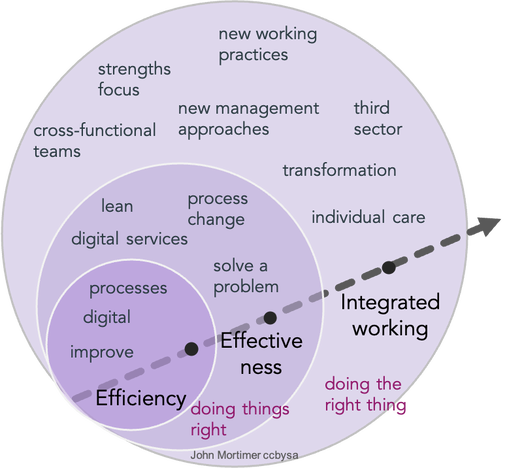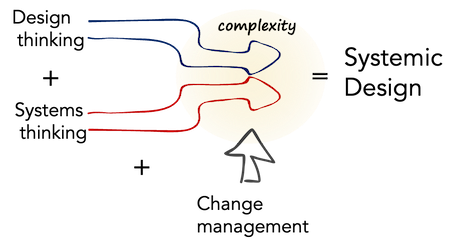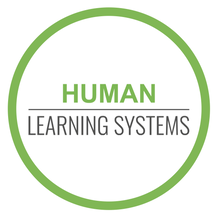Health integrated systemic design; complexity & systems thinking ICS workshop
The health services, including the UK NHS and Social Care ASC, are the most challenging places to attempt to improve or redesign. Just look at the challenges of working with ICS initiatives! Change has often fallen short of our intentions. Systemic design moves us into new integrated ways of working using systems thinking, beyond the boundaries of our existing approaches and enhancing strengths based approaches.
Workshop objectives
- Develop new ways of understanding people we serve, that will capture strength based wider needs.
- To recognise complex 'wicked' characteristics and how to incorporate them into change.
- Understand systemic integrated care systems ICS and how they are born of new principles.
- Incorporate systems thinking, complexity and systemic design concepts and tools.
- Understand better management and leadership of these services.
- Revisit intervention methods and expand them to exploratory safe to try iterative methods.
- Apply new ways of working - reinventing the workplace behaviours.
"'Tremendous value, lots of grounding, loved the examples… Every expectation fulfilled."
"This is a very new way of looking at things..."
This is different because it is not about simply adding methods to what you already do. This answers the question as to what happens when we apply a systemic set of principles to the methods we currently use.
Leaving behind jargon that is prevalent in systems literature, we will be focusing on robust practice and case studies that I and others have actually undertaken over 21 years. We will explore change, and digital, and we will expand them with concepts and methods that are powerful and practical, emanating from experts from the past decades.
The workshop is designed to look at how you can incorporate systems thinking in your change work, to develop new ways of working, that you can then take forward in your journey of developing yourself.
Ideally, you perhaps are;
Leaving behind jargon that is prevalent in systems literature, we will be focusing on robust practice and case studies that I and others have actually undertaken over 21 years. We will explore change, and digital, and we will expand them with concepts and methods that are powerful and practical, emanating from experts from the past decades.
The workshop is designed to look at how you can incorporate systems thinking in your change work, to develop new ways of working, that you can then take forward in your journey of developing yourself.
Ideally, you perhaps are;
- You are an experienced service designer. Or you may be leading other designers.
- You have an internal change OD role, wishing to learn wider systemic techniques.
- You may be a manager of a social care service or NHS leader, wishing to delve closer to integrated ICS working.
|
Why do this course now?
We are pretty good at transforming services like online shopping, and improving processes. Costs have been slashed, and the user experience has got lots better. But what happens when we delve into health services that are not so transactional?
Those services are complex,
Services that are more about people than standard flows,
How can we overcome resistance to change,
What about making change succeed with staff that are tired of change?
Person centred health services are more about the the whole end to end service; together with integrating this into how the health really works and is managed. This workshop is about incorporating proven progressive systemic design and change concepts and methods that deal with the characteristics of people and what matters to them. It is designed to deepen and strengthen our skills to enable us to become more effective.
We will focus on change in the NHS, and learn from the lessons where it has not succeeded.
Those services are complex,
Services that are more about people than standard flows,
How can we overcome resistance to change,
What about making change succeed with staff that are tired of change?
Person centred health services are more about the the whole end to end service; together with integrating this into how the health really works and is managed. This workshop is about incorporating proven progressive systemic design and change concepts and methods that deal with the characteristics of people and what matters to them. It is designed to deepen and strengthen our skills to enable us to become more effective.
We will focus on change in the NHS, and learn from the lessons where it has not succeeded.
"A big game changer…"
"We should be spending more time, not simply delivering Digital, but doing this..."
Why is this workshop different?
You can already do a course on systems thinking, or read a book about complexity, but they are often heavily theoretical, or they are very general. Or you might learn about lots of different systemic tools.
Either approach may leave you with more questions than answers.
What is different in this workshop, is that we will use successful examples of change in the public sector. New techniques; some that you can use immediately, and others that will give you pointers for further.
This is an interactive course that adapts to your own challenges that you might bring to the workshop. We will explore together how we might overcome them using our new found knowledge.
Either approach may leave you with more questions than answers.
What is different in this workshop, is that we will use successful examples of change in the public sector. New techniques; some that you can use immediately, and others that will give you pointers for further.
This is an interactive course that adapts to your own challenges that you might bring to the workshop. We will explore together how we might overcome them using our new found knowledge.
Lets hear it from the participants...I found it brilliantly human; when we are put into an organisation machine design, we are not built like this. This shows the foundation of human-centred design.
What John is doing, the mix of systems thinking and service design in a really practical way. No-one does this. This is really interesting.… How powerful it is when we can bring this and make this visible, and help the decision-makers to make the right decisions. The reason so many Digital projects fail is that were not helping the staff to build the service first… |
|
Systemic design to deal with change with complexity
Perhaps the most impactive activity we can do when helping an organisation, is to first study the person and what matters to them. Listening rather than simply assessing. Strength based understanding.
That will then lead us into the service operational workflow, and the main aspects of delivery that impacts on what matters to customers. We are going to delve into the fuzzy elements of sense-making beyond data, and tackle how complex information is best collated, stored and used.
Rather than understanding an organisation as a machine metaphor, we will delve into how complexity affects design, and how managers and designers make decisions. How to empower staff through liberating their methods from the constraints around them.
You will learn how to observe integrated working co-design, so that we can succeed with change and dissolve resistance to change. And we will look at how to engage managers and leaders so that, together with staff, we co-create the design with decision-makers participating.
Rather than understanding an organisation as a machine metaphor, we will delve into how complexity affects design, and how managers and designers make decisions. How to empower staff through liberating their methods from the constraints around them.
You will learn how to observe integrated working co-design, so that we can succeed with change and dissolve resistance to change. And we will look at how to engage managers and leaders so that, together with staff, we co-create the design with decision-makers participating.
"This is opening up my role; how it could be..."
GDS, Human Learning Systems HLS, & the liberated methodThe NHS and other national health services are now demanding that it moves into the realm of more integrated complex people centred design. Co-design and collaborative approaches are being experimented with, that moves services to cover far more than the standard pathways and referrals.
This is about strengths based approaches, and the example of the Liberated Method www.changingfuturesnorthumbria.co.uk/liberated-method There is much talk about person-centred, integrated working, but the outcomes are often less than robust. This approach we will be examining is underpinned by Human Learning Systems, HLS is a collection of proven case studies and a methodology put together by Prof. Toby Lowe and Impro. |
Strength based working
Understanding What Matters to People, and how that can then be brought into the ways of working in health. Moving out of strict clinical boundaries into voluntary and community working.
Workshop detail
- Identify different types of change & design.
- Starting with sense-making and strength based as a far more powerful way of understanding customers/ users.
- Uncovering true person-centred design.
- Bringing stakeholders together with a common purpose.
- Complexity, and how its understanding liberates us to new approaches.
- How to recognise and overcome the limitations of Digital.
- Co-creation; making it work.
- Cutting through the trendy terminology and focus on practice.
- Begin to develop and practice systemic design and systems convening.
- Communicating complexity, fuzzy and messy data, what to do with it.
- From analysis, to synthesis.
- Big pictures and narrative story-telling.
- Wicked and systemic problem solving.
- Purposeful change & service design.
Course design
Module 1 - The core of systemic design and complexity, discussing the implications for the design methods we use today. We will go through some concepts using a case study, where we will hear from those involved in the case study, and relate that to the concepts. Day 1.
Module 2 - Working on what we have learned, to delve into the reality of co-design, and a new methodology of design in complex environments. We will link into deeper aspects of systems, design thinking & systems convening, where you will participate by bringing your previous experience to the group to discuss ways forward. Day 2
Module 3 - This is where we we will stand back and complete the synthesis between systems, change and complexity. And we will bring the elements we have discussed together, so that you can relate this to your specific work. This module benefits from using the experiences of those in the group to boost our sense-making from the interactions between us. Day 3
It is possible to modify the content to suit particular organisation needs. Please contact me for alternative client designs for this workshop.
Module 2 - Working on what we have learned, to delve into the reality of co-design, and a new methodology of design in complex environments. We will link into deeper aspects of systems, design thinking & systems convening, where you will participate by bringing your previous experience to the group to discuss ways forward. Day 2
Module 3 - This is where we we will stand back and complete the synthesis between systems, change and complexity. And we will bring the elements we have discussed together, so that you can relate this to your specific work. This module benefits from using the experiences of those in the group to boost our sense-making from the interactions between us. Day 3
It is possible to modify the content to suit particular organisation needs. Please contact me for alternative client designs for this workshop.
Pre-requisites & preparation
After booking, you will receive invitation details, and be asked about the issues you face at work that you might want to work on in this workshop.
You will already have real world design or change experience to gain maximum benefit from the workshop. And you must be expecting to expand your view of change & design that you currently hold, that will challenge some of your currently held assumptions. If you're not prepared to absorb new concepts, internalise them, and move them forward yourself, this workshop is perhaps not for you.
For further reflection, a one to one follow up session is also offered after this course.
Your level of English will be good, as is your ability to engage, learn and apply your curiosity.
You will need to have access to a good screen and audio/ visual.
For further reflection, a one to one follow up session is also offered after this course.
Your level of English will be good, as is your ability to engage, learn and apply your curiosity.
You will need to have access to a good screen and audio/ visual.
About John Mortimer
I originally started in engineering, design and managing operational departments, quickly realising that the ability to make a difference lay beyond the technology or in any specialism itself. I have worked in software, operations, engineering, robotics, and finally business consulting. I have an MBA that corresponds to a business background.
Over 45 direct interventions in change and transformation, learned from OD and systemic change consultancies and experts in their field.
I am now returning back the experience and knowledge gained, both from the mistakes, and the successful outcomes that have been achieved across a myriad of services. Incorporating learning has been borrowed by ‘standing on the shoulders of giants’.
Over 45 direct interventions in change and transformation, learned from OD and systemic change consultancies and experts in their field.
I am now returning back the experience and knowledge gained, both from the mistakes, and the successful outcomes that have been achieved across a myriad of services. Incorporating learning has been borrowed by ‘standing on the shoulders of giants’.
My focus has been on the public sector and health sectors in particular - both social care and the NHS.








